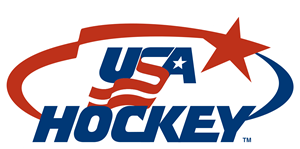Expectations for Parents
WHAT YOU CAN EXPECT FROM US:
- Late-August starts conditioning clinics and tryouts
- Late-August to Mid-March: Fall/Winter Season
- No hockey on Labor Day weekend
- No organized hockey activities over school Winter Break (based on calendar for D39)
- 3 practices each week, scheduled at the same time each week, except in unusual circumstances
- Approximately 40-50 games, depending on playing level, including tournaments
- 1-2 out of town tournaments
- 1 local tournament Thanksgiving week (for most teams)
- A commitment from your Hockey Director to do his best to have your player and his or her team placed into the right level of play. The right level provides critical growth opportunities and promotes skill development while also allowing a player to develop confidence and see that hard work, teamwork, and dedication can lead to success. Wilmette participates in three leagues that provide access to the right level of play:
- CSDHL – Central States Developmental Hockey League (Squirt, PeeWee, Bantam)
- CUHL – Chicago United Hockey League (Mites)



WHAT WE EXPECT FROM PARENTS:
- Ensure your player is on time, dressed, and ready to play for every practice and every game.
- Enable your child to attend every practice and every game: If they aren't there, they cannot develop and help their team.
- We expect hockey to be the priority for travel players from September through March. Please do your best to plan other activities, vacations, and family trips outside of the hockey schedule. Please be aware of and abide by the Attendance & Two Sport Policy. Your team needs your player.
- Ensure your child arrives at games as instructed by the coach – generally 45-60 minutes prior to the scheduled start of the game – to dress and warm up with the team.
- Equipment and dress
- Have your child wear properly fitting equipment – if you are unsure just ask!
- Proper protective equipment should be worn while on the ice.
- Helmets should be white and laces should match one another.
- Your player should wear their provided practice jersey and practice socks to practices, and the provided game jerseys and game socks to games.
- Sharpen your player’s skates regularly (usually about every 4-8 skates, depending on your player’s preference, standard cut is fine for players until they are older and develop their own specific preferences).
- Encourage your child to play by the rules. Learn the rules of the game and support the officials on and off the ice. This helps with player development and appropriate support of the game. Officiating hockey is challenging and the officials are doing the best they can; criticism of the officials only hurts the game and distracts our players from focusing on how they can positively contribute to the game.
- Respect and recognize the role of the coaches. If you have issues with the coaching of your player’s team, address it directly with the coach or the Hockey Director rather than communicating it to the player. Being coachable is important to the development of your player and the sport.
- Promote a growth mindset. Emphasize skill development and practices, and how they benefit your player. De-emphasize the results of particular games and competition, particularly in the lower age groups.
- Be positive and supportive. By having a positive attitude toward the game and all of its participants, your player will benefit. Keep the ride home positive and supportive by emphasizing how much you enjoyed watching your child play rather than focusing on the outcome (good or bad) or on “coaching” your player.
- Be inclusive. Use language and engage in behaviors that are welcoming and inclusive for everyone involved in the game from all backgrounds.
- Praise good effort in both victory and defeat, and emphasize the positive points of the game.
- Abide by the Zero Tolerance and Locker Room Policies. Ensure you and your player are familiar with and abide by these policies. They are designed to make ice hockey a more desirable and rewarding experience for all involved.
- Communicate the importance of following the Expected Player Behaviors. Read through and discuss the importance of these behaviors with your player.
- Be a Good Spectator. Praise good effort in both victory and defeat, and emphasize the positive points of the game. Stay behind the glass area of the rink at all times. Only game officials and coaching staff are allowed to be on the bench, around the scorer’s table, and near the penalty boxes during gameplay. Exceptions are for designated parent volunteers only. NEVER go onto the ice during a game.
Oops!
You have unsaved elements
Please save or cancel the pending changes to the elements within your page and then try saving again.



